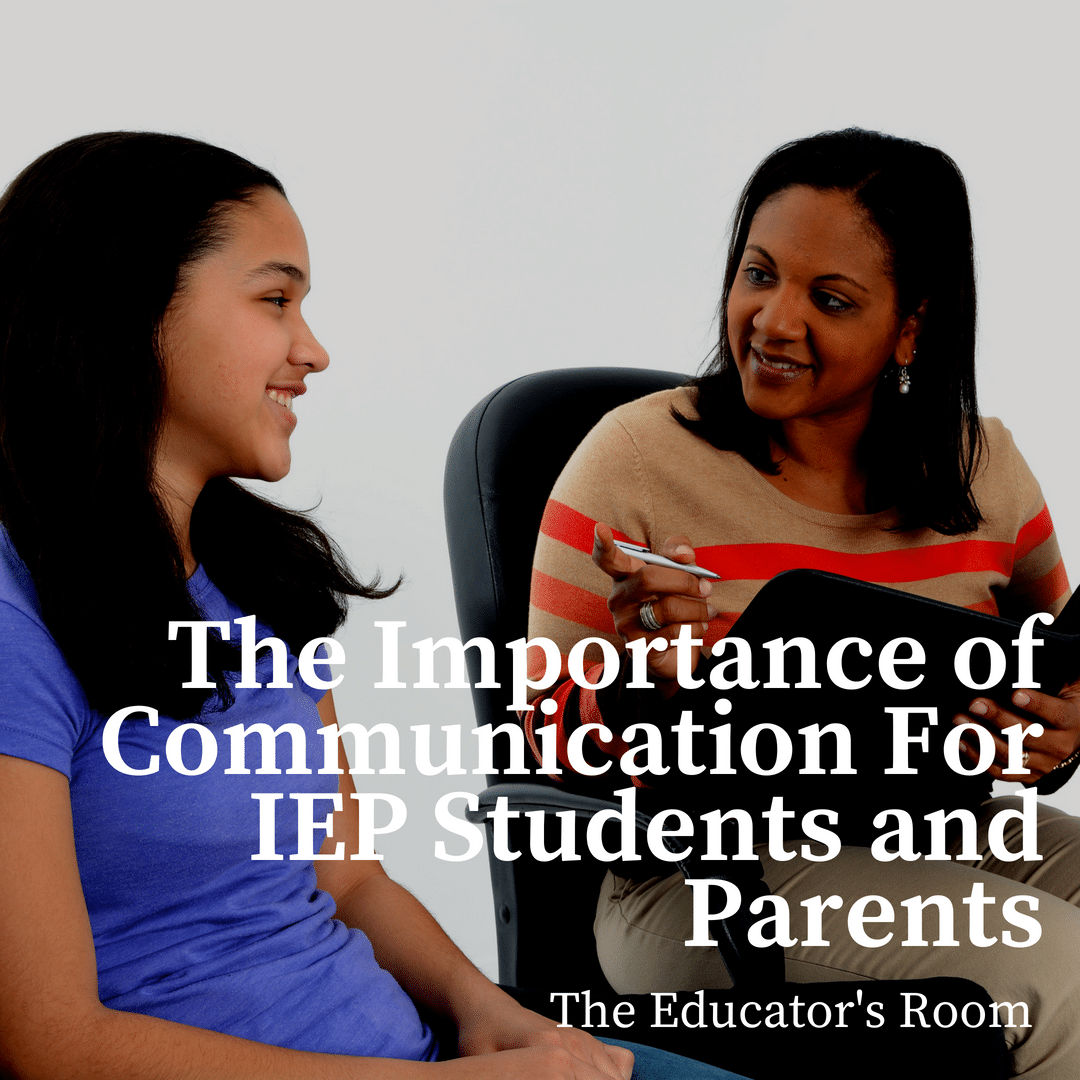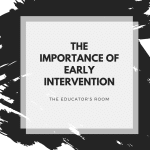I realize that I am a little on the eccentric side. I like it there, without the boundaries and regiment of the real world. And since I see things from a different perspective than most I also enjoy some things that many teachers find to be less enjoyable.
One of those things is IEP meetings.
[bctt tweet=”I LOVE IEP meetings. And that’s not being sarcastic in any way shape or form.” username=””]
You see, IEP meetings to me mean potential and growth have been projected. They mean that there are answers to some questions and that there has been credit given to student characteristics that have been noticed by parents, guardians, teachers, and/or administration.
IEP meetings are the beginning of a new normal and verification that even though the child may be facing difficulties, there is a light at the end of the tunnel- HOPE.
As a special education teacher, I have seen my fair share of angry parents, tearful parents, frustrated parents, and HOPELESS parents (I’ll be using ‘parents’, but know that it also means ‘guardians.’) All of the above break my heart. I am a mother myself and though my children are all grown, I do remember what it was like to feel any and all of the above when it comes to your own child. No parent ever wants suffering or isolation for his or her child. We want our children to succeed, to prosper, to be “normal” (whatever that is.)
So how does effective communication happen during a time that can be deemed stressful and negative?
When I schedule IEP meetings, I make sure I have established a relationship with the grown-ups beforehand, whether that be just reaching out and introducing myself once I’ve received notification that the child is struggling, and I continue dialogue up until the actual meeting. I empathize with them. I realize that their anger and frustration are not directed at me, and I listen to what they have to say. No one likes to be discredited. These relationships are so important, especially since I will be working with the student on the deficiencies once the IEP is signed.
I also discuss THEIR goals and objectives. What does the parent see? How are things at home? Is there something that the parent wants to be addressed as well? Homelife and school life look quite a bit different. Sometimes the parent doesn’t see any struggles or challenges simply because the environment is different. Sometimes the parent doesn’t see any challenges because the parent is gone from home a lot supporting the family. We all need to realize the different perspectives we have, and we need to respect those perspectives. No one is to blame for the struggles a child is having. Instead, we need to focus on what can be done for the child.
Once I have the IEP finished and the meeting scheduled, depending on the status of the child (new eligibility, COE, annual renewal, FBA, etc.) I will notify the parent of what to expect at the meeting. For instance, when doing new eligibility for services there are usually more people involved in the meeting. This can be OVERWHELMING. Possibly eight school professionals, most complete strangers, and one or two parents. Not always a comfortable situation, especially if the parent has the view of their child “doing something wrong” or “causing problems.” My job is to provide comfort, alliance, and most of all, solutions, no matter the number of people in the room. We all must be very careful about the category we are placing a student in. This category follows the child for a very long time, possibly forever. It can keep a child from certain career fields or higher education areas, so we better have all our ducks in a row.
During the IEP, which can sometimes have a sterile feel, I try very hard to make the parents feel at ease, answering questions they may have, providing insight on the information they have been given, and filling them in on my ‘plan of attack.’ As eyes begin to glaze over with the amount of information being tossed at them, I continue to encourage them and brag about the strengths of their child. My goal is for them to leave the meeting knowing that we are doing everything we can to create the best learning environment for their baby, in the least restrictive of environments.
Once papers are signed and the meeting comes to a close, I hold the parents back for a little while. Once my room clears out of all the other staff, I sit down with them, one on one and continue answering questions and introducing them to my room and teaching style. I recognize this is their baby we are talking about; not a number, not a trouble-maker, not a child with a label. I want to have a good ‘feel’ as to where my parents stand once they walk out of my room. I have business cards made with my personal number, school number, and school email so they can reach me whenever they need to.
After everyone is gone I document, document, document. I have a notebook that I keep all of my documentation in and I am very detailed. Once this is done, I make any needed corrections from the meeting, finalize the IEP and send the originals to my administration building.
I check in regularly with all of my parents, whether by email, text or daily communication logs. The relationships I build with them create even more success for the students. We are a team. We have one goal which is to benefit the child.
I have not had many unhappy parents or IEP meetings that have gone south. When either of those situations arises, I stop the meeting and smooth out any misunderstandings before proceeding. Do my psychological exams or regular education teachers like this? Not always. Is it necessary? Definitely. Thankfully I have a wonderful administrator who is very supportive and understands my methodology. Even if I didn’t have the administrative support I would still run my IEP meetings this way. I would much rather have an administrator who was a bit frustrated with me than parents who were not at ease with the teacher who will have their child (who has just been labeled) in her classroom.
It’s all about relationships, folks. I will preach this until my last breath. Creating success for our IEP students, or any students depends on how much we invest in not only them but the others who are in their lives. No go out there and rock your IEP meetings!






Yes, communication is important to building a positive relationship with families. Ms. Glass, your reaching out to parents prior to the meeting is a great way to build that relationship. We have to do this more. That regular positive phone call is a deposit made into that relationship. So when you have to make a withdrawal (negative phone call) the parent and student are more willing to support you.
#TeachersInTouch #SoTeachersCanTeach #ALLIn4Teachers
Hajj
http://www.goteachersintouch.com
Thank you so much for this well written article. I wish more teachers, let alone schools took this proactive approach. I find too many that want to put a label on not just the kid but on the process. They want to put the kid in the corner isolate them away just because they don’t fit the perfect student picture they have created in their minds.
We are currently going through the process to determine if our son should or shouldn’t have one.
Having gone through “many” IEP mtgs I can say that you are a rare bird indeed. My son, now grown, had many learning disabilities compounded by ADHD & Autism. While the school district provided a team tht combated his needs as a whole but on separate issues thy did so with my son’s interest & well being in mind. However, tht was not the case when we unfortunately had to move from one part of state to another more rural area. And even though is admirable there are far too many so-called educators who are destroying children and families lives. I’ll not get into specifics but let’s just say that I’ve never seen educators go out of their way to mentally & physically abuse children as this school district had done. That said, after taking not one but four cases to the Dept of ED & won just only goes to show this school districts determination to deny my child his education, special education and services. I would like to say that while your efforts are to commended please do not forget to educate your colleagues at home & across this nation of the everlasting impact they have on these very vulnerable children & families and to call out those who abuse their position & children. School districts can be a diatribe which in rural areas are a kiss of death whether its the educator or families who speak up. As you say, education is key. The more transparent in understanding the facts then, and only then, can we begin to help these children become successful productive citizens. Oh! Btw, my son who’ll be turning 28 this yr, graduated college last yr w a degree in nursing and is successfully working as a nurse at a local hospital, moved and living in his own apt. In my opinion, tht is what its all about. Peace.